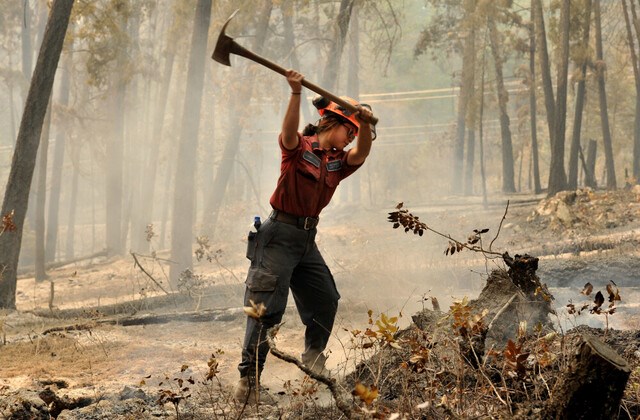An after-action report on last summer’s McDougall Creek wildfire underscores the importance of education, training and proactive emergency management strategies.
The report, commissioned by the Regional District of Central Okanagan, outlines several areas of the local response, including actions of the Emergency Operations Centre (EOC) and incident command as well as pre-season preparedness.
The report concluded while the response went well, improvements can always be made.
“Key recommendations include enhancing preparedness through standardized training and collaboration, developing comprehensive EOC functionality, strengthening support systems for staff wellness, enhancing technical capabilities, fostering collaboration and communication, maintaining a regional focus and expanding facilities (for major events) as needed,” the report states.
“These enhancements have the potential to significantly improve the collective work and response to future emergencies of the Central Okanagan Emergency Operations program.”
In terms of incident command and response, the report suggests collaboration between Incident Command and the BC Wildfire Service provided several key “insights and successes.
“Early regional pre-planning, daily fire behaviour synopses between fire departments, and the establishment of regional task forces significantly heightened levels of preparedness without necessitating EOC activation," the report states.
“Despite facing tens of thousands of decisions with limited information and tight timelines, the coordinated efforts led to zero loss of life, heightened effectiveness of the structural defence plan and collaborative efforts between the BC Wildfire Service and local fire departments.”
However, the report outlined a disconnect in communication channels between Incident Command and the EOC and the need to establish “clear engagement protocols” to streamline decision-making processes and ensure alignment with safety priorities.
Addressing staff wellness and preparedness were key recommendations for EOC functionality.
It was recommended regular training and exercises as well as ongoing staff development initiatives are “vital for maintaining operational proficiency and fostering a culture of continuous improvement.”
The report states pre-season partner meetings can also provide ongoing improvement and preparedness efforts, providing a proactive approach to emergency management.
The report concluded the need for continuous training and proactive emergency management initiatives in the face of climate change and droughts which will increase the risk of wildfires into the future.
“The recent wildfire season, coupled with the ominous predictions of climate change serves as a poignant reminder of the potential challenges facing British Columbia,” the report concludes.
“It raises the question - Are we on the cusp of becoming a new California?
“The interconnected nature of these risks underscores the need for proactive measures, including emergency management preparedness, community resilience building and sustainable land management practices to mitigate the adverse effects and ensure the safety and well-being of residents and our ecosystems.”
A separate report and recommendations around Emergency Support Services response was tabled last month.



